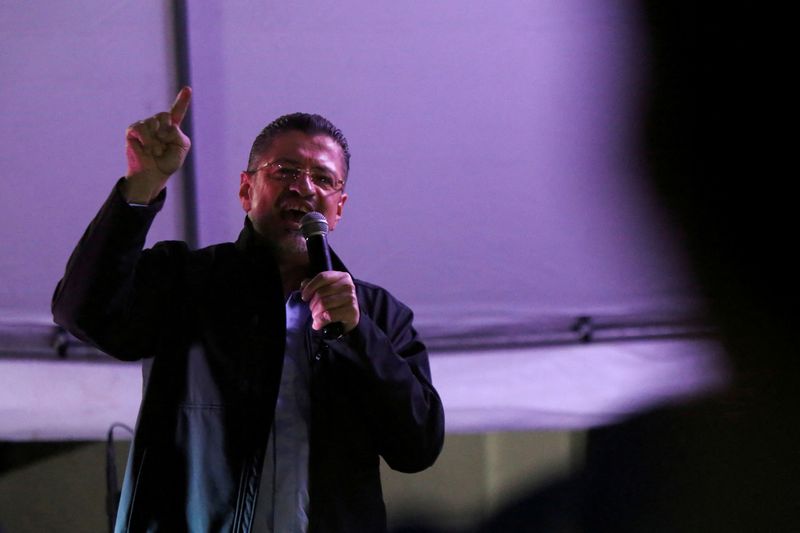By Alvaro Murillo
SAN JOSE (Reuters) – Costa Rica’s former president Jose Maria Figueres will face off with one-time finance minister Rodrigo Chaves on Sunday in a final run-off vote for the 2022-2026 presidential term.
Here are profiles of the candidates:
RODRIGO CHAVES
Economist Rodrigo Chaves, an anti-establishment technocrat, has led recent polls despite his short political career and allegations of sexual harassment during his tenure at the World Bank, from which he stepped down in 2019.
He has denied the accusations.
In 2020, Chaves returned to Costa Rica after three decades abroad to be finance minister for outgoing President Carlos Alvarado.
Chaves built his presidential campaign around cleaning up political graft, helped by his newly created Social Democratic Progress Party (PPSD), which is untainted by past scandals.
The party is led by television journalist Pilar Cisneros, who has heavily criticised Figueres’ centrist National Liberation Party (PLN), which has often held power at national and local level over the past half-century.
Chaves came second in an initial vote in February, placing himself as a favoured candidate for voters seeking an alternative to traditional politics.
The 60-year-old has talked about shaking up the ranks of the political elite that has governed the last four decades, although he has not set out plans to implement radical changes.
Chaves, who has a Ph.D. in Economics from the University of Ohio and is one of eight children, has promised to lower the cost of living, reduce privileges of the political class and use decrees and referendums to skirt opposition in parliament, where his PPSD will have only 10 of 57 seats.
Responding to criticism that he has shown authoritarian tendencies and used irregular electoral financing, Chaves this month said powerful groups were out to get him.
“They say I’m very arrogant and very dictatorial, but I think I tell it like it is and people don’t like it,” he said.
JOSE MARIA FIGUERES
President of Costa Rica between 1994 and 1998, Figueres, an industrial engineer who studied at the United States Military Academy West Point, is seeking a second stint as candidate of the PLN.
Figueres, 67, presents himself as a model of experience and a modernising heir to the legacy of his father, Jose Figueres, a pillar of national politics in the second half of the 20th century.
He has campaigned on the slogan “Let’s have a president again” and vowed to use international contacts to lift post-coronavirus pandemic economic growth and boost green industries in the environmentally friendly country.
Figueres was executive director of the World Economic Forum until 2004 when he resigned amid accusations in Costa Rica that he had influenced state contracts with the telecoms company Alcatel, a case that was never tried in court.
He is also pushing back against the scandal-hit reputation of the PLN. Promising a high-level committee to scrutinise the ethics of officials, he has vowed to fire and strip the salaries of those accused of corruption.
“We are not coming to train the government!” Figueres said in a debate this week. “We have a plan, the one that offers the most proposals and that has collected ideas from all sides.”
(Reporting by Alvaro Murillo; Additional reporting by Diego Ore; Editing by Kenneth Maxwell)



